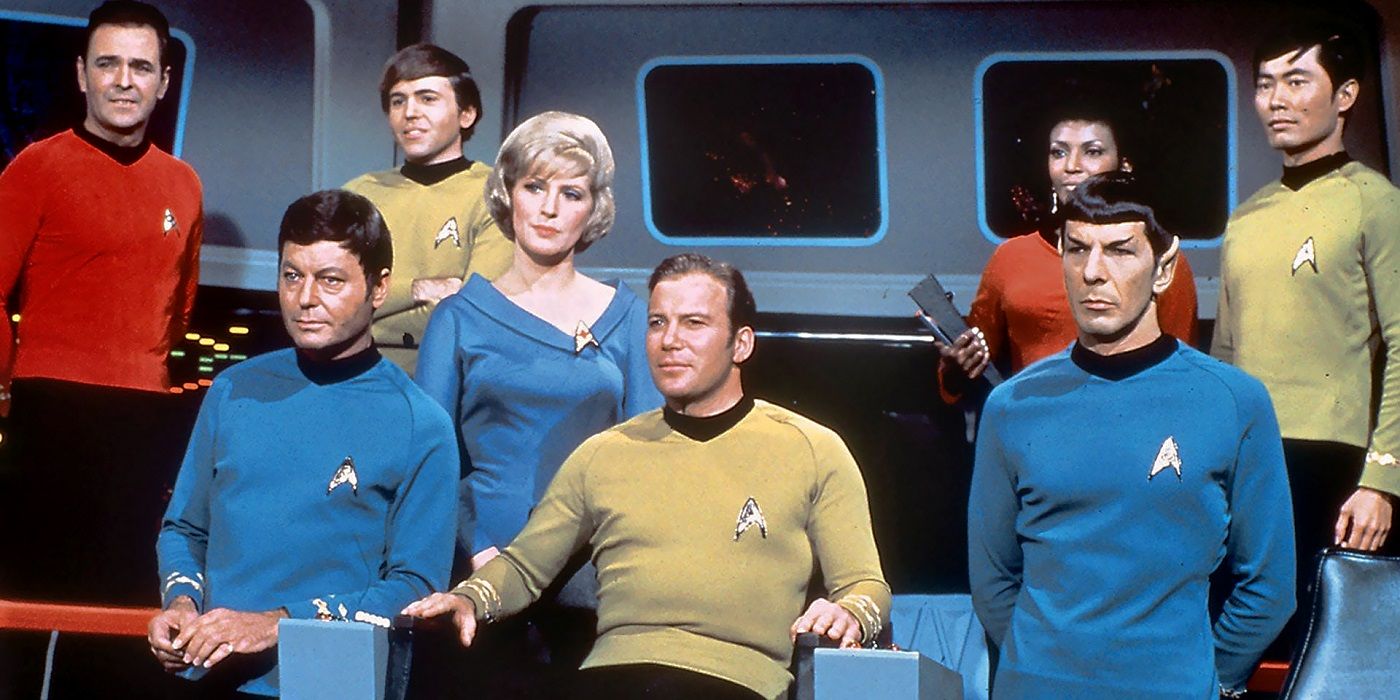Star Trek alumni George Takei called out an opinion piece published by Fox News that claimed the iconic sci-fi series was never political in its storytelling.
Takei shared the headline on Twitter, written by columnist David Marcus, which read, "Star Trek writers take Starship Enterprise where it's never gone before -- woke politics." Takei responded by tweeting, "Who wants to tell him?" and signed off with #IDIC, an acronym for the Vulcan philosophy "Infinite Diversity in Infinite Combination," which was first introduced in the Star Trek: The Original Series episode, "Is There in Truth No Beauty?"
Among the examples of "woke politics" listed in the article included a cameo from Star Trek fan and Georgia gubernatorial candidate Stacey Abrams in the Season 3 finale of Star Trek: Discovery as the President of United Earth. Another example was an episode of Star Trek: Strange New Worlds revealing that the Jan. 6 attack on the U.S. Capitol led to a civil war in the United States.
In addition to Takei, writer Robert Hewitt Wolfe offered a similar critique of Fox News' understanding of Trek politics. Wolfe, who penned more than thirty episodes of Star Trek: Deep Space Nine, tweeted, "Actual #StarTrek writer: 'You're a moron.' You can quote me on that."
Created in 1966 by Gene Roddenberry, Star Trek followed the adventures and diplomatic missions of the U.S.S. Enterprise crew who represented a futuristic Earth where humanity had eradicated world conflict, hunger, bigotry and xenophobia. The show's original cast was groundbreaking for its diversity during the 1960s, including Takei as the Japanese-American Hikaru Sulu, Soviet character Pavel Chekov (Walter Koenig), mixed-race alien Spock (Leonard Nimoy) and Lieutenant Nyota Uhura, a Black woman in a position of authority (Nichelle Nichols). Star Trek also tackled hot-button political topics of the '60s using science-fiction allegories, such as the Vietnam War ("A Private Little War"), racism ("Let This Be Your Last Battlefield") and nuclear armageddon ("The Doomsday Machine").
Though Star Trek was canceled after three seasons, its success led to the release of multiple films and spinoff shows like Star Trek: The Next Generation, Deep Space Nine and Voyager. Each show has openly addressed socio-political issues through similar allegories, ranging from LGBTQ+ rights (The Next Generation's "The Outcast") to housing crises (Deep Space Nine's "Past Tense"). The franchise was rebooted with J.J. Abrams' 2009 Star Trek film and its sequels. However, the original timeline -- dubbed the Prime timeline, compared to the reboot's Kelvin timeline -- has been continued through shows like Picard, which recently concluded its second season.
Current Star Trek series include the live-action Discovery, Picard and Strange New Worlds, as well as animated programs like Star Trek: Lower Decks and Star Trek: Prodigy. Paramount Pictures also confirmed in February that a fourth Kelvin timeline Star Trek film was in development.
Star Trek: Strange New Worlds is available to watch on Paramount+
Source: Twitter

